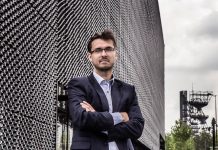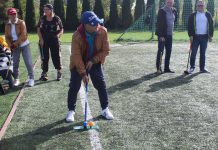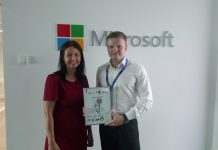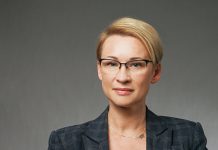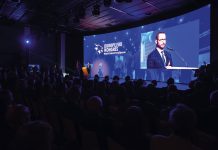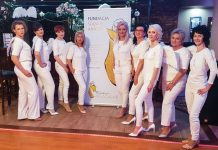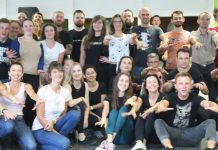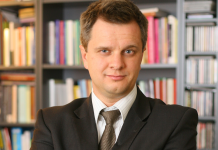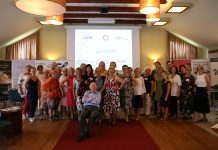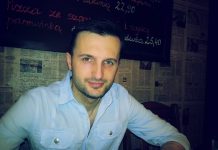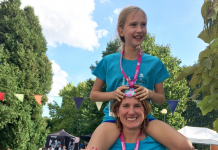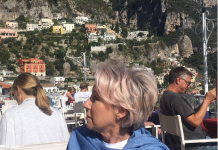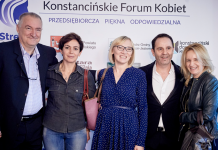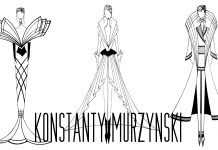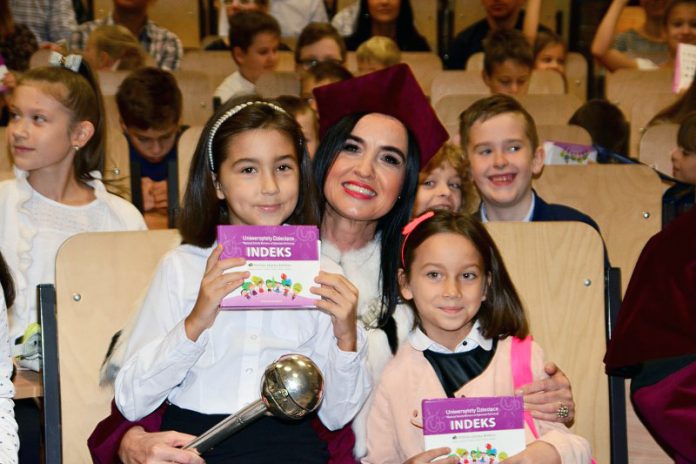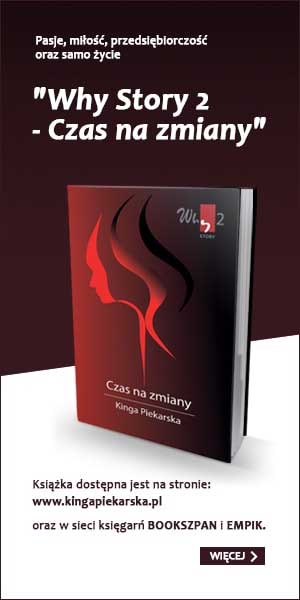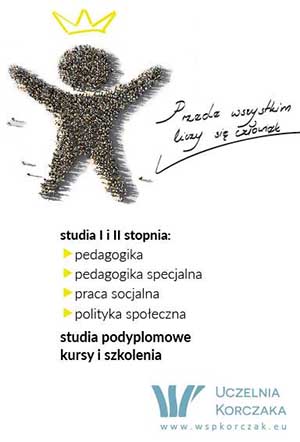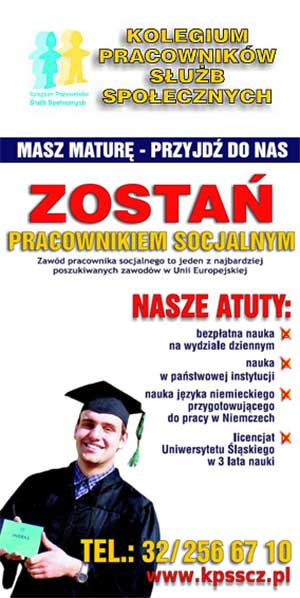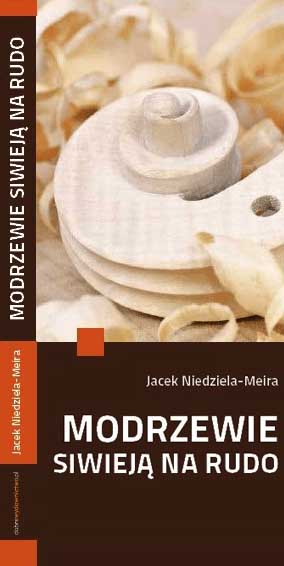An interview with Associate Professor Zdzisława Dacko-Pikiewicz Ph.D, about
dynamic development of WSB University and also about desired characteristics of
the leader. Her Magnificence Rector was honored this year with the title Leader by vocation in the Leader of XXI century category for her scientific achievements, effective developing of the University, also in the international field and social activities for children and seniors.
Are leaders born or made? Is there a feminine style of management? Is it different from the masculine one?
Undoubtedly, some people are born with certain personality traits that are conducive to leadership. However, not only genes determine effective leadership. Being a leader is constant work on yourself. It is a kind of attitude towards life and the world. One of the most important qualities of a leader is the ability to draw conclusions from even the most unpleasant experiences. Masculine and feminine management styles respectively have been distinguished since the 1990s. I think that what is particularly valuable in the feminine management style is care for others and their protection, emphasis on people and good relationships between them, intuition and the pursuit of conflict resolution through negotiations.
What qualifications and predispositions which you have are useful in performing the function of the Rector of WSB University?
Courage and honesty are certainly crucial. Courage allows me to undertake such activities that in the opinion of many are impossible to implement. Honesty, in turn, is not only a personality trait, but also a value that I follow in my life. Being honest and brave allows each failure to be transformed into an opportunity to try again, only wiser … I am convinced that personal integrity, a sense of responsibility are conducive to building trust, which is still lacking in Polish society. On the one hand, I am full of passion and on the other hand I’m responsible and humble. Humility allows me to reflect on how to do 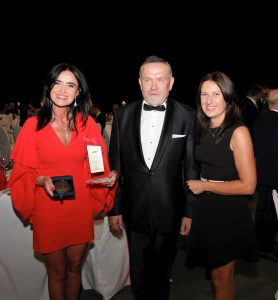 something better, makes it easier for me to accept criticism or admit when I’m wrong. That’s why I value two qualities of true leaders, which are not, contrary to appearances, mutually exclusive. It is self-confidence, understood as a belief in one’s own abilities and humility, which is a sign of strength and perfectly harmonizes with self-confidence. Empathy and optimism are also very important traits, primarily focused on the team I work with. A positive attitude, even in the face of difficulties, challenges and crises, is associated with faith in people and the possibility of achieving success.
something better, makes it easier for me to accept criticism or admit when I’m wrong. That’s why I value two qualities of true leaders, which are not, contrary to appearances, mutually exclusive. It is self-confidence, understood as a belief in one’s own abilities and humility, which is a sign of strength and perfectly harmonizes with self-confidence. Empathy and optimism are also very important traits, primarily focused on the team I work with. A positive attitude, even in the face of difficulties, challenges and crises, is associated with faith in people and the possibility of achieving success.
Please describe the current development of your University.
WSB University, formerly the University of Dąbrowa Górnicza, has been transformed into one of the best non-public universities in Poland in the last few years. The position of
a leader is possible thanks to the passion, commitment, courage and open mind of the whole team of employees in this institution. For 23 years, the development of an educational offer, research and development activity, and infrastructure development have been parallel to the University activity to promote lifelong learning and the popularization of science. We are a leader in postgraduate education, we are entitled to confer the degree of doctor in three programs and the post-doctoral degree in one program, we conduct development, research and scientific projects with major domestic and foreign partners; we are ranked sixth among non-public higher education institutions in Poland, according to the rankings of universities. The long-term operation of the University in a competitive and turbulent environment proves that WSB University, among others due to high-quality education and research, is seen as a strong academic center, a research and cultural center, also friendly to students, graduates and employees of all ages and at every step of the educational and professional path. What’s more, for a few years we have accomplished what many institutions work for much longer. We are proud of it, and at the same time aware that there will be new challenges ahead.
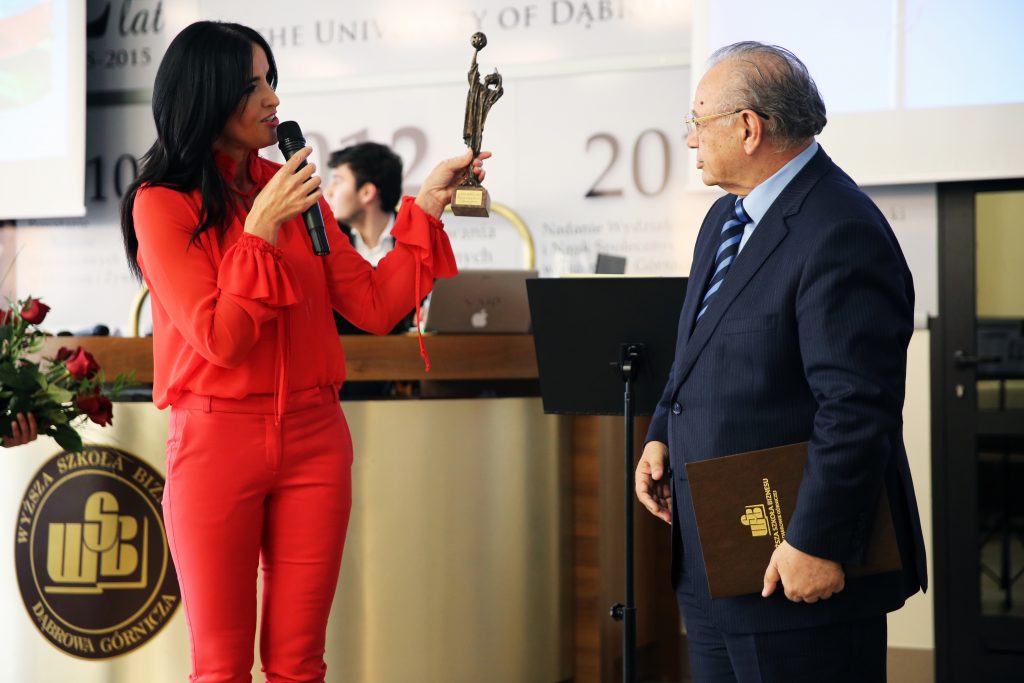
Akademia WSB .
International Day 2018 .
Fot. Roman Koszowski /Akademia WSB
What challenges does the management of such an institution like WSB University pose?
Granting full academic rights to the Faculty of Applied Sciences of WSB University after four years from obtaining the right to confer the degree of doctor of economic sciences confirmed the position of the University as a leading academic center in the country, actively shaping the development of Polish science. The following years will be also devoted to action aimed to improve the entrepreneurial University, i.e. the University that takes up an initiative to increase the degree of innovation, improve the economics of action and thus
strengthen its competitive advantage. Our goals also include modern management, strengthening a cooperation with the environment, searching for new sources of financing, structural changes and the development of the University’s entrepreneurial culture. WSB University is also facing the challenges of internationalization and international competition, improving the quality of research and education, and increasing cooperation with the sphere of entrepreneurship. We plan further activities in the field of developing scientific and research activity, both in the field of primary research as well as in the area of research related to practice, i.e. conducted for the needs of the business environment. The creation of conditions encouraging the synergy of science and business is crucial for the development of innovation. What is a natural phenomenon in the United States and in many countries of the European Union is still at its early stages here. And the success of innovative ventures depends on the financial base of projects developed by scientists.
To what extent is the University an international university?
 For several years an internationalization process of education has been very dynamic at WSB University, taking the form of a comprehensive strategy of an active policy of acquiring foreign students, creating international study paths, integrating global and intercultural content into curricula, adapting University infrastructure to facilitate the development and implementation of programs supporting student mobility etc. Currently, nearly 1,000 foreign students study at WSB University, and they represent more than 40 countries in the world, i.e. Spain, Italy, France, Israel, Colombia, Peru, India, Egypt, China, Vietnam and Thailand. The University cooperates with over 300 international partners. The internationalization of the University is expressed not only in the fact that foreign students take up studies in Poland, but also in the long- and short-term employment of scientific staff from abroad, and participation of our scientists in international educational and research programs. I focus on increasing the attractiveness of the Polish educational offer through international accreditations. We are currently preparing for the EUR-ACE Label, ENAEE European Network for Accreditation of Engineering Education (KAUT) and the CEEMAN accreditation. In addition, we strive to increase the number of foreign visiting professors who come to us from the world’s leading universities. We are currently conducting more than a dozen international projects in partnership with foreign scientific and research units and higher education institutions, as part of mobility and research programs, i.e. Erasmus +, the Polish-Ukrainian Council of Youth Exchange, the Polish-Lithuanian Youth Exchange Fund, the German Academic Exchange Service (DAAD), the Horizon 2020 program, the Poland – Czech Republic Cross-Border Cooperation Program, and the Visegrad Fund. The academic mobility offer of the University is currently over 50 destinations all over the world, from America to the Urals. The confirmation of the University’s high degree of internationalization is the fact that WSB University has once again been at the forefront of the most internationalized Polish universities in the „Perspektywy” ranking. Many factors contributed to this success, i.e. the growing number of foreign students, an increasing range of courses offered in foreign languages, the growing number of foreign lecturers and the diversity of academic exchange programs and international projects that students and staff of the University can participate in.
For several years an internationalization process of education has been very dynamic at WSB University, taking the form of a comprehensive strategy of an active policy of acquiring foreign students, creating international study paths, integrating global and intercultural content into curricula, adapting University infrastructure to facilitate the development and implementation of programs supporting student mobility etc. Currently, nearly 1,000 foreign students study at WSB University, and they represent more than 40 countries in the world, i.e. Spain, Italy, France, Israel, Colombia, Peru, India, Egypt, China, Vietnam and Thailand. The University cooperates with over 300 international partners. The internationalization of the University is expressed not only in the fact that foreign students take up studies in Poland, but also in the long- and short-term employment of scientific staff from abroad, and participation of our scientists in international educational and research programs. I focus on increasing the attractiveness of the Polish educational offer through international accreditations. We are currently preparing for the EUR-ACE Label, ENAEE European Network for Accreditation of Engineering Education (KAUT) and the CEEMAN accreditation. In addition, we strive to increase the number of foreign visiting professors who come to us from the world’s leading universities. We are currently conducting more than a dozen international projects in partnership with foreign scientific and research units and higher education institutions, as part of mobility and research programs, i.e. Erasmus +, the Polish-Ukrainian Council of Youth Exchange, the Polish-Lithuanian Youth Exchange Fund, the German Academic Exchange Service (DAAD), the Horizon 2020 program, the Poland – Czech Republic Cross-Border Cooperation Program, and the Visegrad Fund. The academic mobility offer of the University is currently over 50 destinations all over the world, from America to the Urals. The confirmation of the University’s high degree of internationalization is the fact that WSB University has once again been at the forefront of the most internationalized Polish universities in the „Perspektywy” ranking. Many factors contributed to this success, i.e. the growing number of foreign students, an increasing range of courses offered in foreign languages, the growing number of foreign lecturers and the diversity of academic exchange programs and international projects that students and staff of the University can participate in.
You also conduct a wide range of social activities…
WSB University systematically deepens their relationships with its social, cultural and business environment and responds to the expectations of stakeholders in terms of teaching, academic and research, popular science, cultural, and also social activities. One of the key elements of WSB University is the cooperation between science and business,
which is expressed in building a creative, well-educated society and conducting high-quality research, leading to increased innovation in the economy. The University is actively working for the increase of transfer of knowledge to business and for the commercialization of research results. University experts take part in the work of important business and
scientific institutions, which is the reflection of the growing importance of WSB University opinion-shaping and expert role at both national and international levels. The University
is a member of The Conference of Rectors of Academic Schools in Poland (CRASP), the Polish Association of Employers in Private Education associated with the LEWIATAN
Confederation, the Silesian Association of Employers “Lewiatan”, the Polish Chamber of Commerce for High Technology and the Silesian Metropolis, where the University is a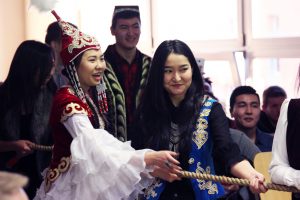
member of the Social and Economic Council. As a member of the Regional Economic Chamber in Katowice, we take part in the work of the Committee for Innovation, Competitiveness and Cooperation of Science and Business, which I chair, and the Committee for Vocational Education and Committee for Industry. I am a member of the Steering Committee for Regional Innovation Strategy in the Marshall Office for the Silesian Region. Vice Rector for International Relations – Professor Katarzyna Szczepańska – Woszczyna and I belong to EWORA – the European Woman Rector Association. We are also involved in the work of the Consultative Team for the Development and Review of the Research Agenda of the Province of Silesia ‘Technologies for the improvement of air
quality and minimization of the harmful effects of pollution’ so called ‘SILESIA under the light blue sky’ and the Business- Science – Self-Government ‘Pro Silesia’ Association, where
I am a Member of the Program Council. It is impossible to list all activities and various institutions we are involved in. These activities, however, are constantly appreciated, the example of which can be distinction in the 2nd Leaders in University Management – LUMEN 2017 competition, which awards best-managed projects and initiatives in the university sector. WSB University received an award in Cooperation Category for the project ’Support From the Start – an integrated system of cooperation between the University and employers to help students in education and professional development in accordance with their studies ‘. This year once again our public actions have been appreciated in the 9th edition of theSilesian Brand competition. WSB University was distinguished in CSR – Corporate Social Responsibility category. Personally, I have received a medal of the Regional Chamber for Industry and Commerce in Gliwice, which honours the outstanding achievements of individuals, especially involved in the qualitative and economic development of the region and the country. I have also been awarded the Golden Badge of the Regional Economic Chamber in Katowice in recognition of my support for the development of the Chamber, my commitment to cooperation and the promotion of the
idea of the economic self-government.
What significance does the establishment of the University of the Third Age or Children’s University have?
Lifelong learning has an important place in the socio – economic strategies of the European Union, including Europe 2020. The significance of lifelong learning is also evident
in organizations such as UNESCO or OECD.
WSB University has been open to children, teenagers and seniors for over 10 years in the form of Children’s University and the University of the Third Age. At the moment the University offers 16 Children’s Universities and 7 Universities of the Third Age. Activities for children help them develop their inner curiosity, stimulate their creativity and discover
their talents. Last year WSB Children’s Universities were awarded in Silesian ‘Sunflowers 2017’ competition as the most developmental initiatives for children aged 0-14 in the
Province of Silesia. Senior students can broaden their knowledge, stimulate educational and cultural activities, as well as their passions and interests. Activities for senior students give
them a chance to make and expand social contacts, which improves the quality of their lives. These activities of WSB University, directed at various groups, are part of the so called third mission of the university, which constitutes the forum for social activity. We have to remember that the reality of the 21st century if full of changes resulting from civilization development, globalization and scientific development. This world requires fast and flexible adaptation to new realities and modern technologies.
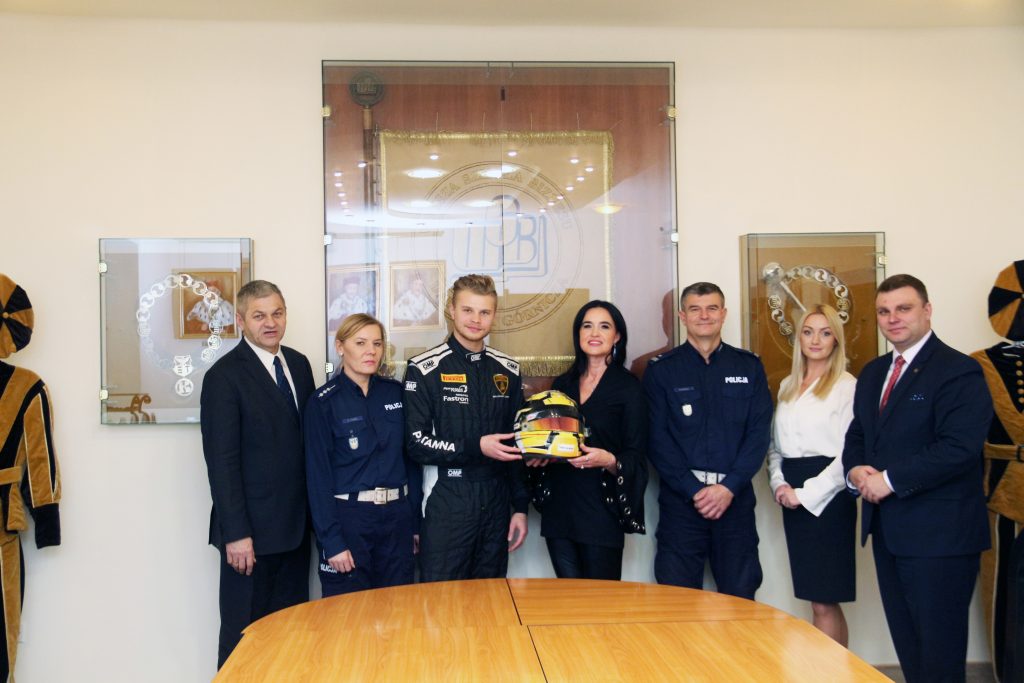
Do you feel that you are a Woman Leader of the 21st century?
It is the team of people I work with that makes me feel a Woman Leader of the 21st century. I do not manage my employees, but I cooperate with them, build a network of contacts based on close relationships. I infect them with authenticity, honesty, vision and optimism. I try to be a person who competently stimulates and boosts people’s intellectual
development. I’m of the opinion that leaving the decision-making process to one person is a bit of madness nowadays. There are too many variables in too limited time frames around us. The ability to stimulate the development of collective intelligence is the key competence in leaders in the 21st century companies. I am also aware that there is no stability and no predictability in the world of business. Therefore, I try to be the leader of change, who can motivate and mobilize others to permanently function in the world of novelty. As a leader I also try to be a catalyst for anxieties.
Plans and dreams, both professional and personal?
I’m a supporter of work-life integration, which enables all the parts that make up our lives to join and intertwine. Not only work, but also family, hobbies and interest, build our whole life. All these constantly intertwine, even if we think that we are doing everything to keep them apart. That is why my professional and personal dreams are connected. Since the very beginning of my work in WSB University I have had a vision for its development. These include new innovative projects, deeper internationalization of the University,
and further rights to confer a degree. When I set new goals, I am inspired by the words of Steve Jobs: „The people who are crazy enough to think they can change the world are the one who do”. I am convinced that it is worth setting ambitious goals, even if a road to achieving them is long and difficult. Ambitious goals are thrilling. I never assume that I
might not achieve them. That is also what my team says. At WSB University our fundamental assumption is that nothing is impossible. The more ambitious the goal is, the more we are pleased with the success we have all achieved.
Other important information
The University encourages all activities that help balance professional and personal lives of their employees and students. They include the individual organization of studies, the infrastructure, and, above all, friendly atmosphere for student-parents and their children, as well as profitable discounts. These are some of the favourable conditions offered to parents studying at WSB University. In 2013 the University started a project ‘Mum and Dad Go to University’, consequently broadening the offer of studies facilitating balance between family responsibilities and the improvement of qualifications and competencies. It is worth noticing that the ‘Mum and Dad Go to University’ project was repeatedly awarded and distinguished, for instance in the Family-Friendly Company competition, which is why WSB University has the right to use the title of Family-Friendly University. Our solutions, working in favour of the studying parents and their children, were also noticed in the ‘Good Climate for Family’ competition organized by the President of Poland.






